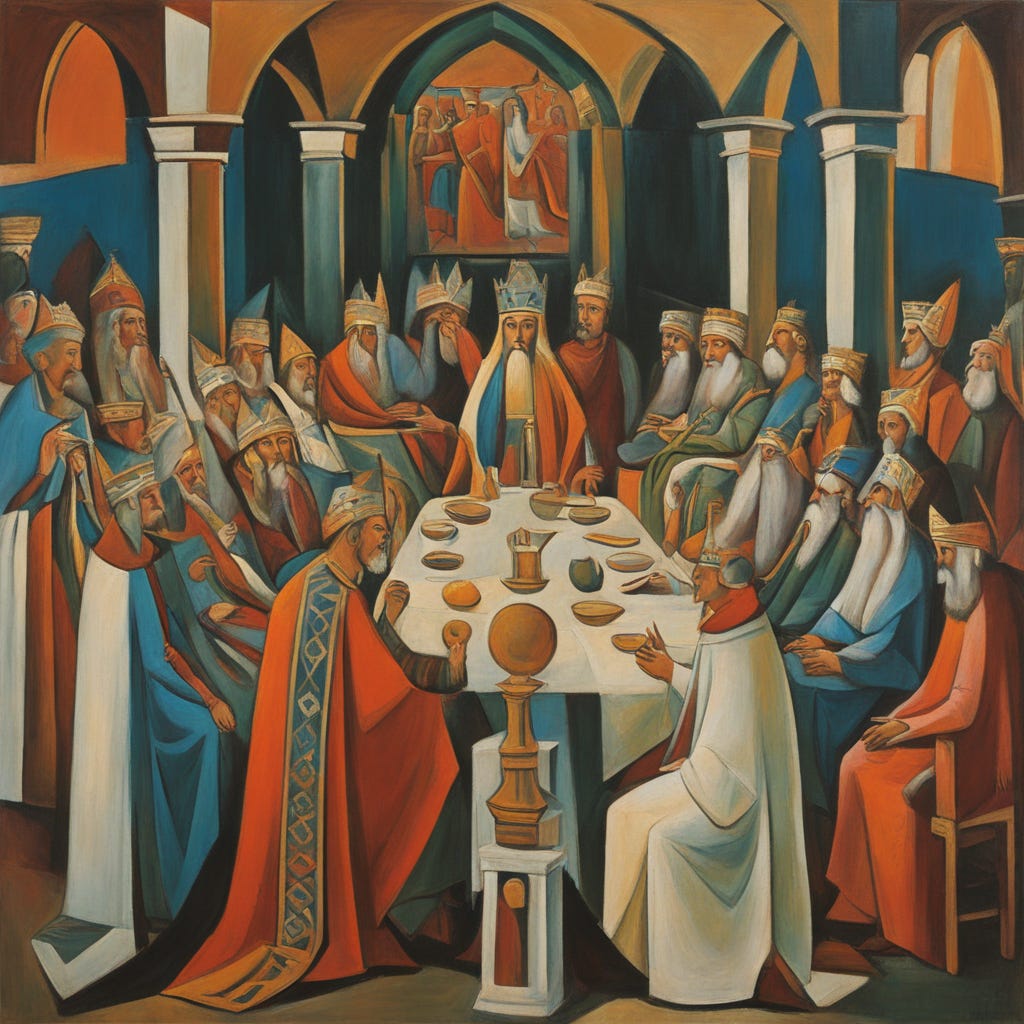The Council of Nicaea was an ecumenical council convened in 325 AD by Emperor Constantine to get the eastern churches all singing off the same sheet of gospel music when it came to the divinity of Jesus.
First, Emperor Constantine attended the council of Nicaea, he was not a mere spectator, but neither did he impose his own version of Christian theism on an unwilling council in some ham-fisted fashion as per Dan Brown's fiction. The proof of that is while the Council of Nicaea formally condemned Arius, Constantine later restored him and tried to reinstate him into the Egyptian church. It was only Arius’ death that prevented it from happening. Constantine’s main concern was church unity. Constantine did not want the eastern churches to fight and fragment the same way the western churches had during the Donatist controversy.
Second, the Council of Nicaea was mostly an eastern affair. Only six or seven western bishops attended and only a few from outside the domains of the Roman empire (i.e., Armenia and Persia). The council was presided over by Bishop Hosius of Cordoba from Spain.
Third, no, Santa Claus, AKA Saint Nicholas, AKA Bishop Nicholas of Myra, did not slap down Arius at the council because Arius was not there! Sorry, but the memes about Santa slapping heretics are wrong!
Fourth, the council of Nicaea equated hypostasis with ousia and denied that the Father had a hypostasis different from the Son. The problem is that after subsequent debates hypostasis would be regarded as the equivalent of “person” while ousia would be “substance.” So later creeds, like the Nicene Creed, refer to three divine hypostases and one divine ousia.
Fifth, the Nicene Creed is not the same as the Creed of Nicaea. The Nicene Creed you recite at church is based on the 381 AD Council of Constantinople’s adaptation of the Creed of Nicaea, which made some cosmetic changes in light of debates between 325-381.
Sixth, Arianism still persisted after the council. The Vandal and Gothic tribes had accepted an Arian form of Christianity. And, semi-Arianism and Arianism-lite would come to dominate the Roman empire for most of the next 50 years, often with imperial sponsorship and sanction.





I did not know these... fascinating! I’m also always interested in how the church deals with heresies and theological debates over time, and how even once the official church doctrine has been decided, the alternative thoughts still persist in so many ways.
Ha, I’ll be the little know-it-all that says, I did know these things. But it’s so entertaining reading the way you write it. I feel for Arians. 3 in 1 is no easy concept.